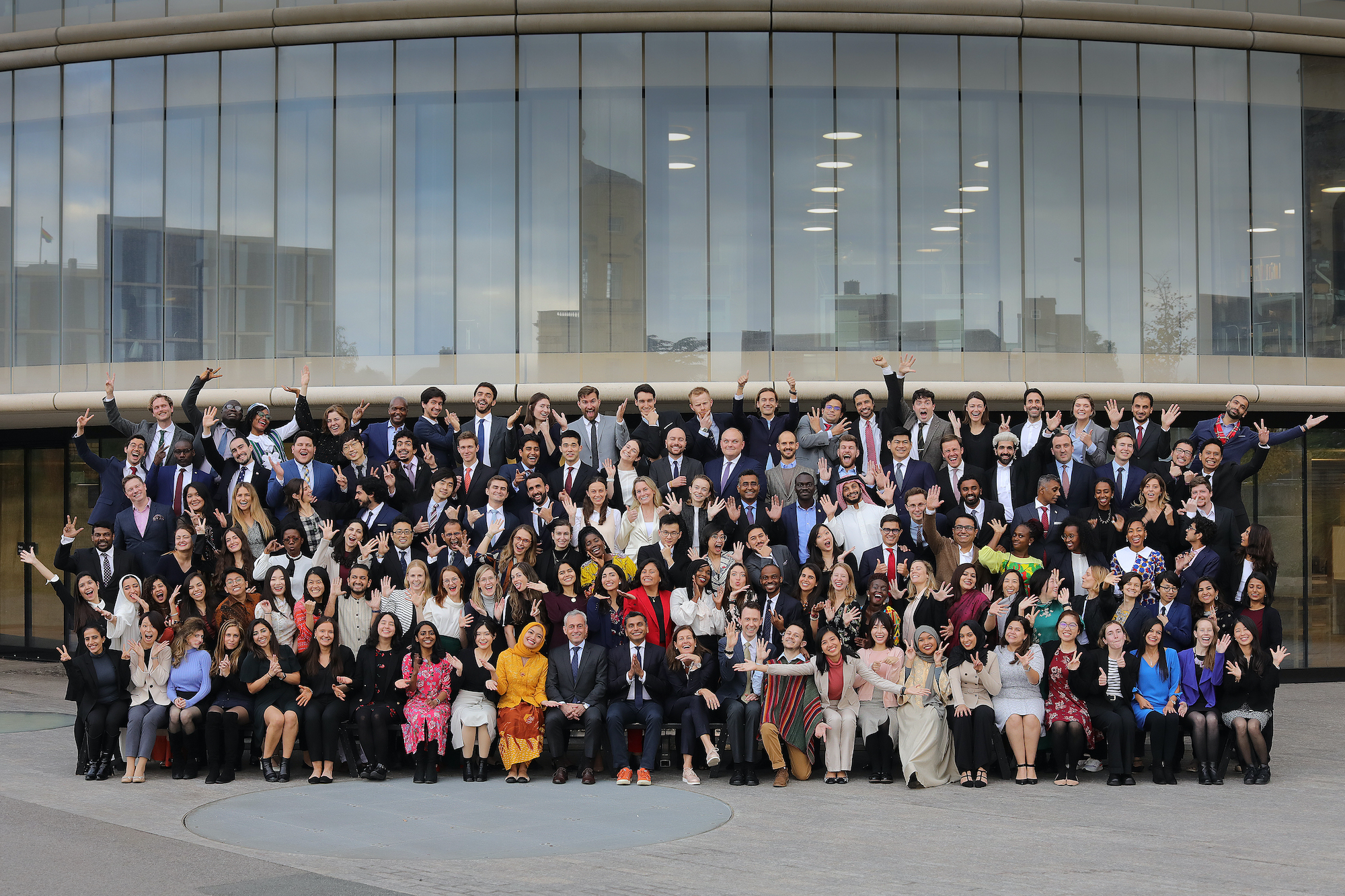Reflections from a year at the Blavatnik School of Government
As teaching comes to an end for the MPP class of 2021, David Morrow reflects upon the Blavatnik School's culture and why this has made his year on the course particularly special.

We’ve reached the end of the Master’s of Public Policy (MPP) at the Blavatnik School of Government. Well, that’s not quite true. We all have to do a summer placement working in an organisation of our choice and write a 4,500-word report by the end of August. So why does it feel like the end?
Because it is the end of being together. Rather like in the last Harry Potter book when Harry, Ron and Hermione roam around the wizarding world trying to find pieces of Voldemort’s soul rather than staying at Hogwarts, once we’ve left the school and we’re not all together every day, it just won’t be the same.
And that is a testament to the culture that the Blavatnik School has created. Looking around our class of 141 during this week’s goodbye and reflection events, it was clear how immensely comfortable with each other we had become. This didn’t happen by accident. As the Director of the MPP, Karthik Ramanna, told us on Friday, in whatever organisation you are in the culture matters more than almost anything else. I couldn’t agree more. So how do you get it right, and why does it matter so much?
How do organisations get culture right?
An organisation’s culture is about its people, so the first step to getting the culture right is getting the people right. At the Blavatnik School the admissions team work tirelessly hard reviewing applications for months. When you arrive on the MPP it’s clear that the work pays off. Pretty much everyone on the MPP comes with the attitude of being there to engage with others, and that creates such a welcoming environment.
Furthermore, it’s obvious that the admissions team don’t look at applications in isolation, but at the picture of the class as a whole. There is a real skill in getting the balance of experiences, ages, and nationalities (among other variables) correct in any organisation to create the right blend.
The second step is for the organisation’s leadership to continuously set the tone. On the MPP, our first two and last two weeks of teaching have been particularly intense, with lots of interpersonal interaction. During orientation, this served the purpose of creating a class bond, fast. In the final two weeks, it served to remind the class of how much we value each other and how far we’d come in our relationships. A good leadership will skilfully steer a group’s culture without the group even realising it.
With these two factors – the right people and a skillful leadership aware of culture’s importance and their ability to influence it – the rest is relatively organic. The right people in the right environment will build their own positively reinforcing culture. This is definitely my experience of the MPP, where so much of what we did took place outside of the syllabus, but as a result of processes that started within it.
Why does it matter?
Three things stand out to me as to why culture matters so much. Firstly, a supportive environment creates spaces for people to be vulnerable, and when people are vulnerable, they can be themselves, which is always when people are strongest. Telling people to “bring their full selves” is easy to say, but every organisation has it in their power to make it a viable reality for their people.
Secondly, a positive culture will support the building of lasting relationships that survive even when people move on. If your organisation is focused on a purpose that goes beyond what happens there and then, then it needs a culture that will generate those bonds. A community centre in Northern Ireland that my family has been involved in for my entire life, Corrymeela, has a saying: “Corrymeela begins when you leave”.
Finally, the above factors build loyalty to an organisation. When people ask me about the Blavatnik School, I’ll speak fondly of the course, the building, the staff, and much more. But I’ll think of the people first. That lasting association of the organisation with the people and the bonds it created is good for everyone.
It is said that people don’t usually remember what you say, but they remember how you made them feel. The same is true for organisations. I am immensely grateful to the School that for the nine months that I was there, it made me feel as close to home as it possibly could.
David Morrow is an MPP student from the class of 2021. This blog was originally published on Morrowblogs.

